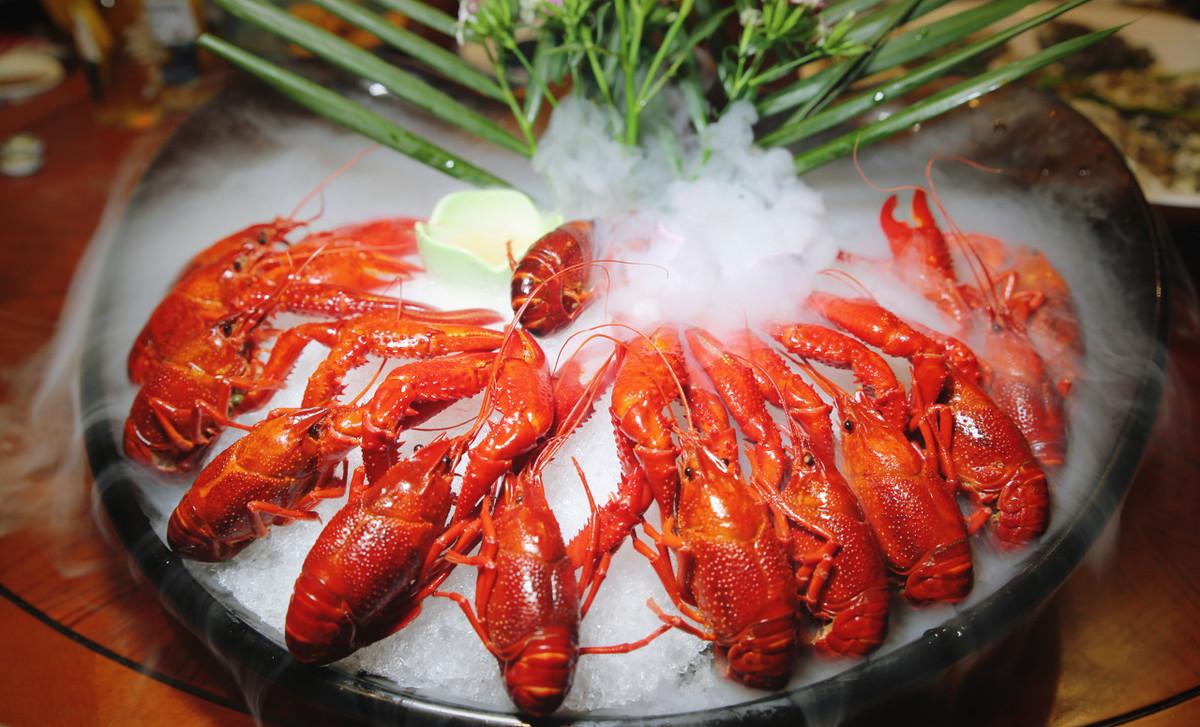China has a long history, and I don't even know from what time ago there has been food. That is to say, because of the inheritance of the ancestors before, there will be today's Chinese food culture, and these food cultures are not only spread in China, but even extended to foreign countries, and even foreigners love Chinese food, and even are very interested in Chinese food culture.

Recently learned that a long-established cuisine, even at the time controversial name, is it called "Cold Cup" or "Cold Cup"? Since the early 1990s, every year from early summer to late autumn, Rongcheng has countless catering shops and stalls to make business in the streets, courtyards, dams, and riverside greenery. Most of these food stalls sell some home-cooked small dishes such as boiled peanuts, chives, edamame carobs, dried tofu, brine chicken wings, brine duck feet, pickled chicken claws, stir-fried field snails, fried lobsters, etc., and serve some "soaked wine", beer, draft beer and other drinks.
At sunset and dusk, within the "sitting field" of these food stalls, there are always people boiling and bustling. This form of eating in the open air courtyard or on the street side of the shop is called "cold cup" by the people of Rongcheng. I don't know why, a few years ago, some people criticized the "light" on the "cold cup" signboard in Rongcheng city as a typo, saying that the "cold cup" should be changed to "cold cup". So, should the cold cup be written as "cold" or "cold"? Here, let's first take a look at the folk customs and customs of old Chengdu!
The word "cold cup" was originally a common saying of the people of Chengdu. In his 1990 book "Miscellaneous Talks on Sichuan Cuisine," Che Spoke Lao mentioned: "Having wine and no dishes is precisely the habit of Sichuan people to serve a 'cold cup' and eat wine and not vegetables." According to the "flat words" of the cold cup: the cold cup is to eat food cold, so it should be renamed "cold cup". However, this explanation also happens to show that the people who speak these words do not actually understand the material form and spiritual connotation of the "cold cup".
Speaking of the word "啖", Chengdu people usually like to use it as "meaningful" and "both form and god". The interpretation of 啖 in the Etymology is: 啖, eating or giving people to eat. Han Wangchong's "On Balance": "In the world of pawns, grain is scarce, the people are hungry, and they eat each other." Song Sushi's "Eating Lychees": "Three hundred lychees a day, do not quit being a Lingnanian." Oh, and again? 、?。 Also known as eating, it is useless to satirize people. The Biography of Beishi He Ruobi: "Shang Yue: 'I take the high-frequency Yangsu as the prime minister, and Ru Every Changyan is only able to do this two people?' Rice ear, what does it mean?" Therefore, Chengdu people often call those who love to take advantage of small profits and like to "eat cheating heads" as "babies". The word "啖" is used here, which obviously only means derogatory and sarcastic. For the Chengdu cold cup of this form of dining and business form, we should still use the "cold cup", if we one-sidedly understand and rename it "cold cup", then the "cold cup" here seems to be somewhat disrespectful to diners, of course, it also damages the image of Chengdu as a historical and cultural city. I don't know if you've ever eaten?